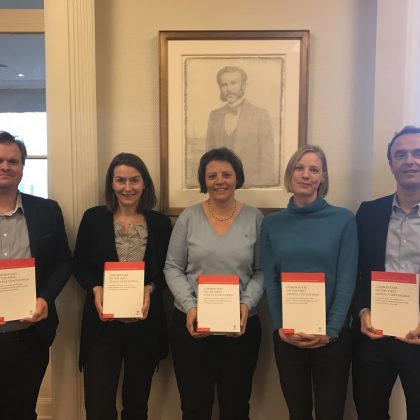“Exegesis and Appropriation: Reading Rashi in Late Medieval Spain”
 The Commentary on the Torah of Rashi (Solomon ben Isaac; 1040–1105) stands out as the most widely studied and influential Hebrew Bible commentary ever composed. Among Jews, it has shaped perceptions of the meaning of the foundation document of Judaism for over nine centuries.
The Commentary on the Torah of Rashi (Solomon ben Isaac; 1040–1105) stands out as the most widely studied and influential Hebrew Bible commentary ever composed. Among Jews, it has shaped perceptions of the meaning of the foundation document of Judaism for over nine centuries.
Given its quasi-canonical status, it comes as no surprise that the Commentary has evoked extensive scholarly inquiry. Yet investigation of reactions to Rashi’s exegesis in religiously, culturally, and geographically disparate communities of the Jewish world has been amazingly scant. This article explores some of the ways that medieval Spanish scholars who composed commentaries on Rashi’s scriptural magnum opus (“supercommentaries”) treated what appeared to them, and many other southern Mediterranean scholars, to be problematic aspects of the midrashic tradition that comprised the dominant component of Rashi’s exegesis.
The larger frame for the study is “exegesis and appropriation.” The examples studied show how the Spanish supercommentators’ interpretations of Rashi’s ideas often took a productive turn, reading the greatest of Ashkenazic biblical commentaries in ways that met conditions of understanding prevalent in the Ibero-Jewish milieu in which they wrote. In this way, the article explores processes of “appropriation,” a conceptual category that points away from the idea of one-way transmission and towards the complex ways in which intellectual, literary, and material expressions or artifacts are brought to represent something “different from their original purposes” (Ashley and Plesch, “The Cultural Processes of ‘Appropriation’,” Journal of Medieval and Early Modern Studies 32 [2002]: 6). What emerges is a successive unfolding of meaning as the divinely vouchsafed prophetic word is refracted through the Commentary and then through Sephardic-tinted lenses supplied by the supercommentators.
Read the full article here with free access until November 30, 2017.





